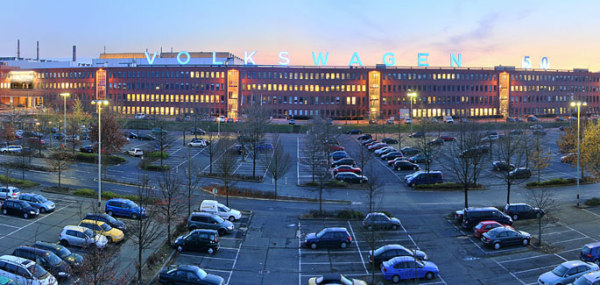See the full article here.
1. In 81 percent of American counties, the median income, about $52,000, is less than it was
15 years ago. This is despite the fact that the economy has grown 83 percent in the past quarter-century and corporate profits have doubled. American workers produce twice the amount of goods and services as 25 years ago, but get less of the pie.
2. The amount of money that was given out in bonuses on Wall Street last year is
twice the amount all minimum-wage workers earned in the country combined.
3. The
wealthiest 85 people on the planet have more money that the poorest 3.5 billion people combined.
4. The average wealth of an American adult is in the range of $250,000-$300,000. But that average number includes incomprehensibly wealthy people like Bill Gates. Imagine 10 people in a bar. When Bill Gates walks in, the average wealth in the bar increases unbelievably, but that number doesn’t make the other 10 people in the bar richer. The median per adult number is only about $39,000, placing the U.S. about
27th among the world’s nations, behind Australia, most of Europe and even small countries like New Zealand, Ireland and Kuwait.
5. Italians, Belgians and Japanese citizens are
wealthier than Americans.
6. The poorest half of the Earth’s population owns 1% of the Earth’s wealth. The richest 1% of the Earth’s population
owns 46% of the Earth’s wealth.
7. More locally, the poorest half of the US owns 2.5% of the country’s wealth. The top 1% owns
35% of it.
8. Inequality is a worldwide problem.
In the UK, doctors no longer occupy a place in the top 1% of income earners, London plays host to the largest congregation of Russian millionaires outside of Moscow, and also houses more ultra-rich people (defined as owning more than $30 million in assets outside of their home) than anywhere else on Earth.
9. The slice of the national income pie going to the wealthiest 1% of Americans has
doubled since 1979.
10. The 1% also takes home
20% of the income. This figure is the most since the 1920s era of laissez faire government (under Republicans Warren Harding, Calvin Coolidge and Herbert Hoover).
11. The super rich .01% of America, such as Jamie Dimon, CEO of JP Morgan, take home a whopping 6% of the national income,
earning around $23 million a year. Compare that to the average $30,000 a year earned by the bottom 90 percent of America.
12. The
top 1% of America owns 50% of investment assets (stocks, bonds, mutual funds). The poorest half of America owns just .5% of the investments.
13. The poorest Americans do come out ahead in one statistic: the
bottom 90% of America owns 73% of the debt.
14. Tax rates for the middle class have remained essentially unchanged since 1960. Tax rates on the highest earning Americans have plunged from an almost 70% tax rate in 1945 down to around 35% today. Corporate tax rates have dropped from 30 percent in the 1950s to under 10 percent today.
15. Since 1990,
CEO compensation has increased by 300%. Corporate profits have doubled. The average worker’s salary has increased 4%. Adjusted for inflation, the minimum wage has actually
decreased.
16. CEOs in 1965 earned about 24 times the amount of the average worker. In 1980 they earned 42 times as much. Today, CEOs earn 325 times the
average worker.
17. Wages, as a percent of the overall economy, have dropped to an
historic low.
18. In a
study of 34 developed countries, the United States had the second highest level of income inequality, ahead of only Chile.
19. Young people in the U.S. are getting poorer. The
median wealth of people under 35 has dropped 68% since 1984. The median wealth of older Americans has increased 42%.
20. The average white American’s median wealth is
20 times higher ($113,000) than the average African American ($5,600) and 18 times the Hispanic American ($6,300).
21. America’s highest income
inequality is located in the states surrounding Wall Street (New York City) and the oil-rich states.
22. Since 1979, high school dropouts have seen median weekly income
drop by 22 percent. Ethnically, the highest dropout rates are among Hispanic and African American children.
23. In 1970, a woman earned about 60% of the amount a man earned. In 2005 a woman earned about 80% of what a man earned. Since 2005, there has been no change in that figure. African-American women earn just
64% of what a white male earns, and Hispanic women just 56%.
24. Over 20 percent of all American children live below the
poverty line. This rate is higher than almost all other developed countries.
25. Union membership in the US is at an
all-time low, about 11% of the workforce. In 1978, 40 percent of blue-collar workers were unionized. With that declining influence has come a concurrent decline in the real value of the minimum wage.
26. Four hundred Americans have more
wealth, $2 trillion, than half of all Americans combined. That is approximately the GDP of Russia.
27. In 1946, a child born into poverty had about a 50 percent chance of scaling the
income ladder into the middle class. In 1980, the chances were 40 percent. A child born today has about a 33 percent chance.
28. Despite massive tax cuts, corporations have not created
new jobs in America. The job creators have been small new businesses that have not enjoyed the same huge tax breaks.
29. More than half of the members of the United States Congress, where laws are passed deciding how millionaires are taxed, are
millionaires.
30. Twenty five of the largest
corporations in America in 2010 paid their CEOs more money than they paid in taxes that year.
31. In the first decade of the 21st century, the
U.S. borrowed $1 trillion in order to give tax cuts to households earning over $250,000.
32. In 1970, there were five
registered lobbyists working on behalf of wealthy corporations for every one of the 535 members of Congress. Today there are 22 lobbyists per congressperson.
33. In 1962, the 1% household median wealth was
125 times the average median wealth. In 2010 the divide was 288 times.
34. During the Great Recession, the average wealth of the 1%
dropped about 16 percent. Meanwhile the wealth of the 99% dropped 47 percent.
35. Between 1979 and 2007, the wages of the top 1% rose
10 times more than the bottom 90 percent.






































